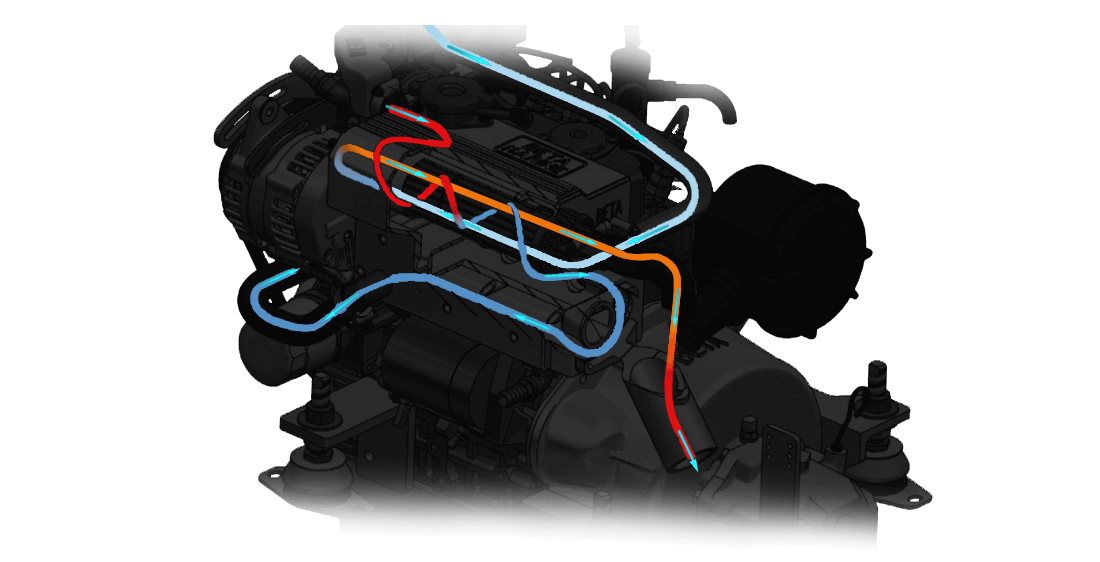Tips and Rules for Safe Boat Motor Maintenance
Engine Cooling Systems Explained
Boat motors are not equipped with radiators as cars are, but still must somehow dissipate the heat generated by the friction of the moving parts. The two most common cooling systems are the raw water system and the enclosed or fresh water cooling system.

The raw water system simply takes water from the body surrounding the boat, pumps it through the engine to draw out the generated heat and discharges the heated water through the exhaust system. This discharge has two benefits. It cools the exhaust and also muffles the sound of the exhaust.
An enclosed system has the same general configuration as the raw water system. However, in the enclosed system a small tank containing anti-freeze is added to the engine and this "fresh" water cools the engine parts. This liquid is then passed through a heat exchanger, where its heat is dissipated through a series of tubes which are surrounded by the cooler raw water. The raw water absorbs the heat of the fresh water and then is pumped out the exhaust as in the raw water system. The advantage of the fresh water or enclosed system is that the engine parts are not exposed to the surrounding, potentially contaminated water. This is especially useful when operating in salt water.
When you start your boat, make sure that water is being discharged from the exhaust system. This indicates that the cooling system is operational. DO NOT START THE ENGINE WITHOUT WATER BEING SUPPLIED TO THE COOLING SYSTEM. The impeller will burn out quickly without water to cool and lubricate it, and the engine could seize because of overheating.
Boat Electrical System Safety Tips
Boat breakdowns are usually caused by faulty electrical systems. By the nature of what a boat does and how it does it, it is a floating corrosion pit. This is especially true when operating in salt water. You should keep all electrical systems clean and corrosion free by frequent inspection. Clean battery terminals, electrical connectors, etc. and spray them with a corrosion retarding agent such as CRC.
Fuel System Safety Tips
Fuel systems are comprised of one or more tanks, valves, lines, pumps and filters. Each of these elements, if left unserviced, can be potentially hazardous. Check your tank often for potential corrosion, which could cause leakage. Inspect the shutoff valves, lines, and pumps periodically for corrosion or wear. Check and change filters frequently to be assured of clean fuel entering your engine.
The most important tool you have to diagnose problems in the fuel system is your nose. Do the "sniff test" each time you board your boat. If you smell fuel, find the problem.
How often should you change the oil filter on a boat?
Just as it is important in your car to keep the oil and oil filters clean, the same holds true in your boat’s engine. Every three hundred hours, or a least once each season, change the oil and filter on your marine engine.
